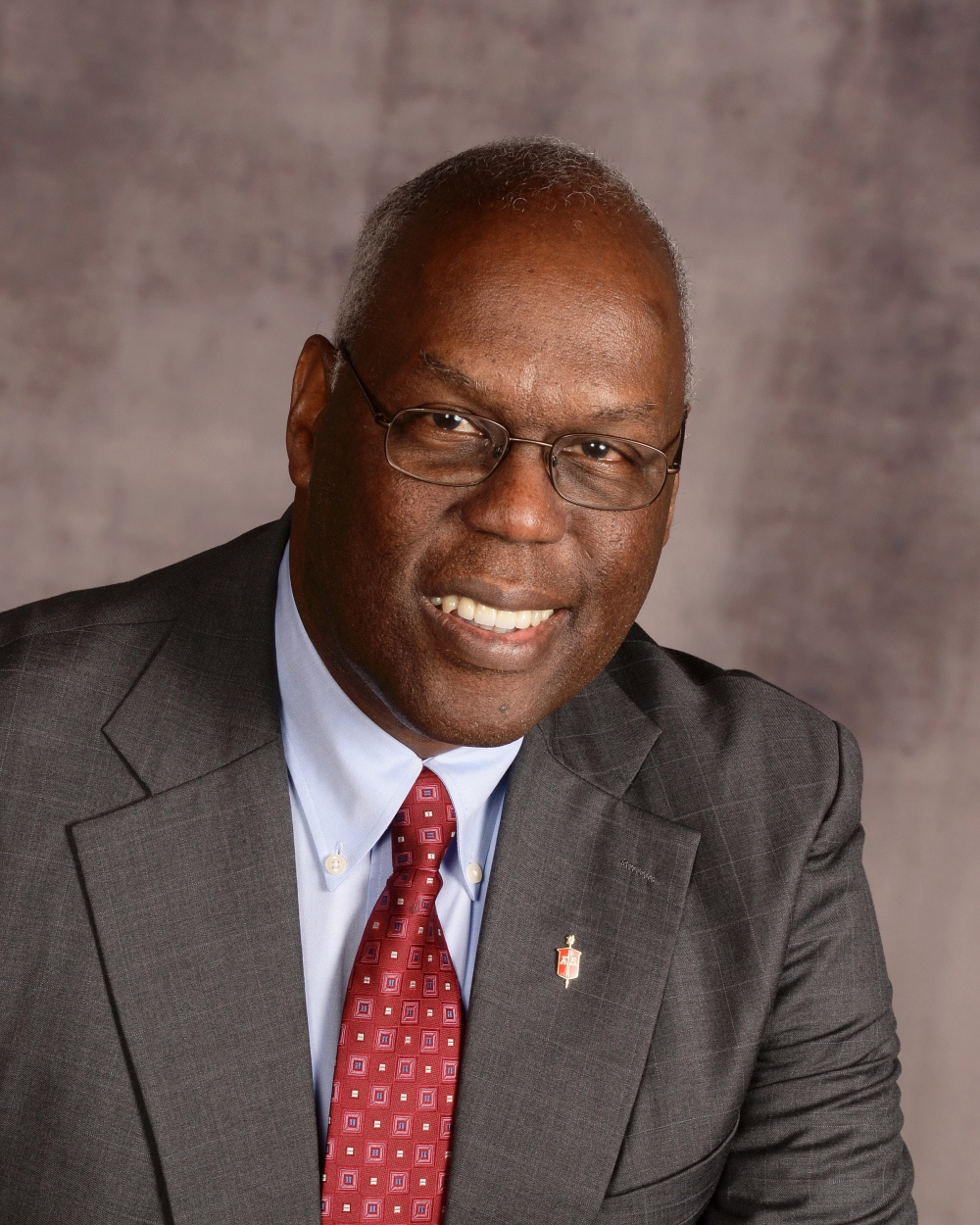Growing up in the still racially segregated Methodist Church, young Warner Brown Jr. knew the denomination had churches where he as an African-American would not be welcome.
“I remember that there were times within our church where it was impossible for some to see the image of our God when they looked in my face,” he said, recalling his Baltimore childhood.
“But God is patient, loving and gracious, and has caused a work to be transformational in the life of our church.”

Bishop Warner Brown
Photo courtesy of the Council of Bishops
Today, Brown serves not only as a bishop in the now increasingly geographically and ethnically diverse United Methodist Church but also as president of the denomination’s Council of Bishops.
Brown testified to God’s transforming power in his final address to his bishop colleagues as their president. He spoke late on May 5, just days before the start of the 2016 General Conference, the denomination’s top lawmaking body, where many United Methodists are hoping to change the church in various ways.
Many observers anticipate the most fervent debates at this General Conference will be over how the church ministers with lesbian, gay, bisexual and transgender individuals.
The United Methodist Book of Discipline, the denomination’s governing document, since 1972 has proclaimed that all people are of sacred worth but the practice of homosexuality is “incompatible with Christian teaching.” The denomination bans the performance of same-gender unions and the ordination of “self-avowed practicing” gay clergy.
Many United Methodists see these policies as biblically mandated while others see them as unbiblically discriminatory.
The bishops in Brown’s audience have varied views. They included many advocates for the church’s stance, especially African episcopal leaders, as well as others who challenge it — including retired Bishop Melvin Talbert who recently defied church law to officiate at a same-gender celebration again.
Talk about church challenges
Brown, who today leads the San Francisco Episcopal Area as Talbert once did, never explicitly mentioned the church’s ongoing debate in his brief address.
Instead, he focused on God’s work in helping the church work through its challenges, especially practices widely seen today as discriminatory.
“My story is a piece of a longer story that began centuries ago when people genuinely desiring to serve God and to proclaim Jesus Christ had not yet fully understood what Jesus taught about who is our neighbor,” Brown said. “The ability to marginalize some and privilege ourselves was common.”
He spoke of how Methodists and other Christians plundered indigenous peoples in North America and elsewhere — acts the church will remember and repent of at this General Conference.
Brown also spoke of the colonial attitudes Americans took toward their African and Asian brothers and sisters in Christ — acting more like conquerors than friends.
Today, he said, United Methodists — with God’s guidance — are working toward overcoming the wicked deeds of the past.
The denomination’s Africans, Asians, Americans and Europeans now work together more as equal partners in ministry, he said.
'Poised to be an inspiration'
Bishop Benjamin Boni of Côte d'Ivoire told United Methodist News Service he agreed with Brown that United Methodists in the U.S. are shedding a colonial outlook. “To serve God, we have to work together,” he said.
In addition, United Methodists in the Philippines — including the nation’s three bishops — are taking the lead in protecting farmers, many of whom are indigenous people, facing persecution from the Filipino government.
Bishop Ciriaco Q. Francisco, who despite threats, has provided shelter for indigenous people, known as Lumads, told UMNS he is determined to continue that work.
Toward the end of his address, Brown said he continues “to believe that our church is poised to be an inspiration for God’s people and especially for the people called Methodists.”
He pointed out that Methodists were among the protesters who risked violence and worse in the U.S. civil rights movement. Likewise, one of the most ardent segregationists, Alabama’s Gov. George Wallace, was also a Methodist. Brown suspects that many of the police officers and firefighters who turned firehoses and dogs on civil rights protesters were Methodist too.
Nevertheless, Wallace and others eventually repented of the harm they did to their neighbors.
That progress was evident at the memorial service for bishops and bishop spouses that preceded Brown’s address. Among the United Methodists celebrated was Bishop William Wesley “Bill” Morris, who helped officiate at Wallace’s funeral in 1998. Morris, who died this January, was the first African-American bishop in the Alabama-West Florida Area.
“Will we ever all see things together?” Brown said. “We haven’t so far.”
Nevertheless, he said, God’s grace has blessed United Methodists with power not to be bound by past sins.
“May the God of endurance and encouragement give you and all of us the attitude toward each other similar to the attitude of Christ Jesus,” Brown said. “That way we can glorify God and follow our Lord Jesus Christ together with one voice.”
Hahn is a multimedia news reporter for United Methodist News Service. Contact her at (615) 742-5470 or [email protected]
Like what you're reading? Support the ministry of UM News! Your support ensures the latest denominational news, dynamic stories and informative articles will continue to connect our global community. Make a tax-deductible donation at ResourceUMC.org/GiveUMCom.





